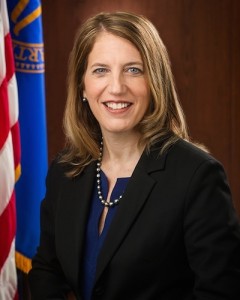 This week, the Department of Health and Human Services announced that it would follow up its Pioneer Accountable Care Organization (ACO) Model with a new, Next Generation ACO Model. ACOs operating under the new model will take on more risk than their predecessors, potentially share more savings, and will have greater freedom to be reimbursed for telemedicine.
This week, the Department of Health and Human Services announced that it would follow up its Pioneer Accountable Care Organization (ACO) Model with a new, Next Generation ACO Model. ACOs operating under the new model will take on more risk than their predecessors, potentially share more savings, and will have greater freedom to be reimbursed for telemedicine.
“The Next Generation ACO Model is one of many innovative payment and care delivery models created under the Affordable Care Act, and is an important step towards advancing models of care that reward value over volume in care delivery,” HHS Secretary Sylvia Burwell said in a statement. “This model is part of our larger effort to set clear, measurable goals and a timeline to move the Medicare program -- and the health care system at large -- toward paying providers based on the quality, rather than the quantity of care they give patients.”
The news for telemedicine is big, according to Jonathan Linkous, CEO of the American Telemedicine Association. Despite Pioneer ACOs being built around outcomes-based payment structures, they've still historically been bound by old telemedicine laws that only allow reimbursement for face-to-face video telemedicine within hospitals -- not in the home -- and only in rural areas.
"Even though they’re not technically in the fee-for-service world, they still have this prohibition, which is just crazy," Linkous told MobiHealthNews. "The law does allow the secretary to waive that requirement, they can waive that for ACOs to allow them to use telemedicine, but the secretary’s never chosen to do this even though we’ve been pleading on our knees trying to get them to do this."
For the new organizations that apply to be Next Generation ACOs, the secretary has agreed to waive that prohibition, meaning doctors in those organizations will be able to get reimbursement for urban and at-home patients.
The bad news, Linkous says, is that the prohibition against telemedicine reimbursement in urban areas is still in force in the existing Pioneer ACOs. But this decision makes it more likely that CMS will extend the waiver to Pioneer ACOs as well.
"This is relatively minor, in that it doesn’t affect any population at the moment," he said. "But it’s a huge step forward that Medicare is now ... waiving that requirement that you have to be in a rural environment or a hospital. The door is ajar, and we’re hoping it’s the beginning of swinging the door wide open. It’s a very significant decision for what it represents."
Linkous noted that in many ways, Medicare is the last holdout of the somewhat arbitrary rural restriction for reimbursement. Medicaid and many private payors already reimburse for urban telemedicine, and even under Medicare, some Pioneer ACOs already offer those services and take on the cost themselves.
CMS will accept ACOs into the Next Generation ACO Model via two rounds of applications, this year and in 2016, with participation in the program expected to last up to five years.



















